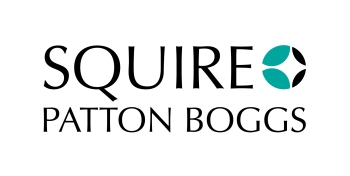The Northern District of Illinois recently declined to stay an action for declaratory relief relating to an insurance coverage dispute arising out of the ongoing Clearview litigation. This was because, the court held, determination of whether an insurance policy applied did not require resolution of facts related to the policy holder's alleged violations of Illinois' Biometric Information Privacy Act ("BIPA"). Citizens Ins. Co. of Am. v. Wynndalco Enters., LLC, No. 20 C 3873, 2021 U.S. Dist. LEXIS 15300 (N.D. Ill. Jan. 27, 2021). The case is a reminder that with the growth in data privacy litigations, there will inevitably be coverage disputes regarding what entity (if any) should cover a defendant's expenses defending such suits. Read on below.
In Citizens Ins. Co. of Am. v. Wynndalco Enters., LLC, No. 20 C 3873, 2021 U.S. Dist. LEXIS 15300 (N.D. Ill. Jan. 27, 2021), the plaintiff (an insurance company) sought declaratory relief that it has no duty to defend or indemnify defendant Wynndalco in two BIPA class action litigations. In the BIPA litigations, it was alleged that Wynndalco "operated as Clearview's Illinois-based agent by purchasing Clearview's technology and then reselling or licensing it to law enforcement agencies, whether directly or through another intermediary". Id. at *9. Accordingly, Wynndalco purportedly "violated the BIPA by capturing, collecting, receiving, storing, disclosing, and/or using biometric identifiers and biometric information, without complying with the statutory requirements, in the course of its agency relationship with Clearview." Id.
Citizens subsequently filed a declaratory judgment action, seeking a ruling that that it had no duty to defend or indemnify Wynndalco and the CEO and founder of Wynndalco in the litigations involving Clearview. Wynndalco, in turn, moved to stay the matter pending resolution of the underlying cases.
Wynndalco's motion to stay was premised on the principle that "it is generally inappropriate for a court considering a declaratory judgment action to decide issues of ultimate fact that could bind the parties to the underlying litigation." Id. at *6. For purposes of resolving the insurer dispute, Wynndalco argued the court would have to determine two questions of ultimate fact on which the underlying actions hinged: (1) "whether Wynndalco was a government contractor, and therefore exempted under BIPA:; and (2) "whether Wynndalco 'possessed' biometric information." Id.
The court disagreed. This was because, it explained, to determine whether Citizens had a duty to defend "the Court need only ask whether the allegations of the [BIPA] complaints, 'if proven, . . . would establish an injury' covered by the Policy". Id. at *9 (emphasis in original). Accordingly, it was not necessary to stay the litigation pending resolution of the BIPA class actions. The court additionally noted that Wynndalco and the Wynndalco executives had conceded as much in their briefs "where they cite multiple precedents for the proposition that the insurer's 'duty to defend exists as long as the allegations of the underlying complaint are potentially within the scope of coverage.'" Id. (emphasis in original).
So there you have it. This case is a cautionary reminder to defendants in data privacy litigation that insurance coverage for legal fees is not guaranteed merely by the existence of a policy (and there may be challenges to a policy's scope before the merits of the underlying data privacy litigation are resolved). For the most update to date news concerning the various issues implicated by the Clearview litigation stay tuned. CPW will be there to keep you in the loop and informed of other developments regarding data privacy litigation more broadly.
For further information on this topic please contact Hannah J Makinde at Squire Patton Boggs's Los Angeles office by telephone (+1 213 624 2500) or email ([email protected]). Alternatively, please contact Kristin L Bryan at Squire Patton Boggs's Cleveland office by telephone (+1 216 479 8500) or email ([email protected]). The Squire Patton Boggs website can be accessed at www.squirepattonboggs.com.
This article has been reproduced in its original format from Lexology – www.Lexology.com.




